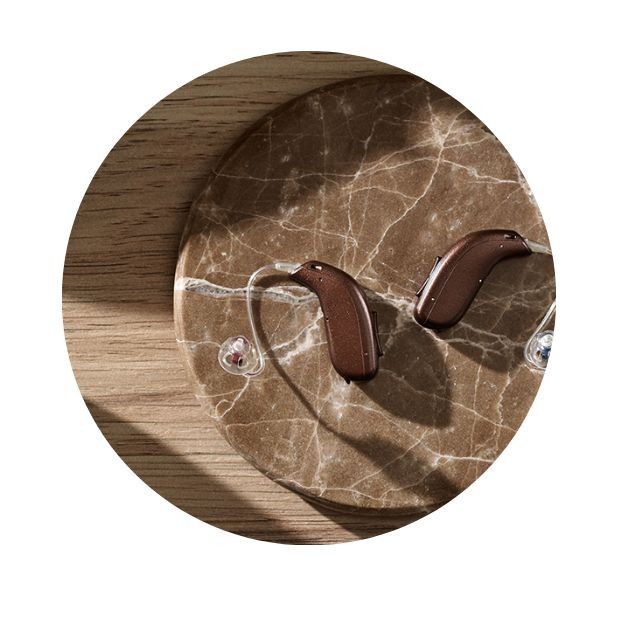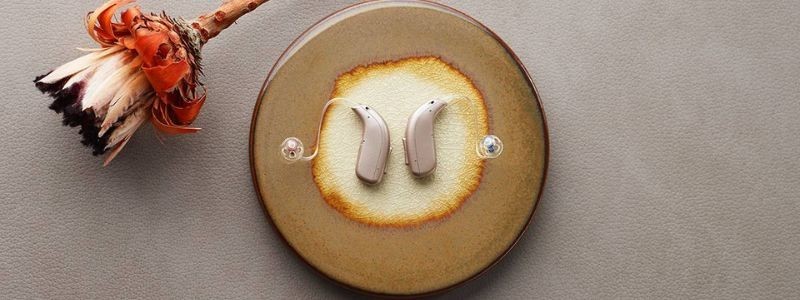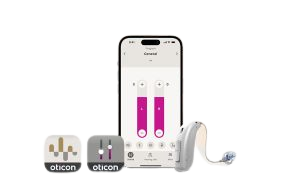Hearing Aid Troubleshooting
Troubleshooting some common problems with hearing aids
| Hearing Aid UK 17/02/2026 Update |
How to troubleshoot common hearing aid problems
If your hearing aids have stopped working properly, take a deep breath - most problems are surprisingly simple to fix at home. We've seen thousands of "broken" hearing aids that just needed a battery change or a quick clean. Let's walk through the most common issues together.
Troubleshooting hearing aids involves checking for common issues such as dead batteries, blocked earwax filters, or improper settings. Users should clean the device, ensure it is turned on, and verify volume levels. Persistent problems may require a professional evaluation to diagnose and resolve more complex technical or fitting issues.
If you have hearing loss, hearing aids are the most common and successful treatment for it. To continue to hear at your best and to keep your hearing aids in optimum performance, it is important to identify, understand, and act when you stumble across hearing aid troubleshooting problems.
On this page, we go through the issues hearing aid wearers can experience on a day-to-day basis and offer some advice to help you tackle them. Most issues can be resolved in just a few minutes - hearing aids are remarkably robust devices, but they do need a bit of care and attention.
What are the most common hearing aid problems?
- My hearing aids sound distorted
- My hearing aids are giving me feedback
- My hearing aids aren't giving me any sound, or my hearing aids are dead
- My hearing aids aren't loud enough for me
Below are our quick fixes for hearing aid troubleshooting problems; however, if you are unable to fix your hearing aid issues at home, you must contact your audiologist, who can identify what is wrong and take the right steps to repair your hearing aids.
Don't struggle alone or worry about "bothering" us - that's precisely what our lifetime aftercare is for. We'd rather help you quickly than have you frustrated with hearing aids that aren't working properly.
Hearing Aid Troubleshooting: How to fix your hearing aids sound

My hearing aid's sound is distorted or muffled
- Examine your hearing aid batteries; do they look like they have corroded? If they do replace them with new ones.
- Examine the battery's small metal prongs that connect with the hearing aid batteries when you close the device door. Do they look like they have corroded?
Try closing and opening the device door to clean the metal prongs, and then replace the batteries with new ones.
- If you are struggling to clean the metal prongs, your audiologist can do this for you instead.
- You might have switched the setting to a wireless one, which is generally used when using an assistive listening device. If so, use a different memory or program.
- Check for blockages in the tubing or microphone openings, and clean them as recommended by your audiologist.
- Check the battery voltage. If the batteries are low, it can affect sound quality. Replace them if necessary.
- If the above doesn't work at home, your hearing aids might be damaged. If this is the case, contact your audiologist to book an appointment to look into a repair.
Hearing Aid Troubleshooting: Hearing aid problems with feedback or whistling sounds

My hearing aids are giving me feedback
- Remove your hearing aids and put them back in, as they might not be in correctly.
- Turn down your device's volume. If the feedback continues, your audiologist might have to re-fit your hearing aids, as the devices might have too much sound escaping through the vents or ear mould.
- Your ears might have a build-up of earwax, as this can cause feedback due to having to turn up the volume or sound bouncing off your wax.
- If you have lost weight, you might have to have your hearing aids fitted again. For example, you might have to have new ear moulds made to fit your new ear shape.

Hearing Aid Problems
My hearing aids aren't giving me any sound, or my hearing aids are dead
Problems with your hearing aid's sound?
This is the most common problem we hear about, and nine times out of ten, it's something simple. Let's check the usual culprits:
- Examine your hearing aids; there might be earwax trapped in the microphones or sound outlet. If so, gently clean away the blockage with a clean cloth. This is honestly the most frequent cause - earwax is completely normal, but it blocks sound brilliantly.
- Double-check that your hearing aid is switched on. For instance, if the battery door isn't closed properly, this usually means that the battery has been put in upside down, and the device will not work.
Take the battery out, reinsert it the right way up and close the battery door. We've all done this - no judgment here. The "+" sign on the battery should face upward.
- Turn up your hearing aid's volume or change programs to see if this helps. Sometimes you've accidentally pressed a button without realising.
- Change the batteries; your hearing aid might be dead or need charging. Disposable batteries typically last 5-10 days; rechargeable batteries need overnight charging.
- If the above doesn't work at home, your hearing aids might be damaged. If this is the case, contact your audiologist to book an appointment to look into a repair. Most repairs are covered under warranty, and we can often provide loaners whilst yours are being fixed.
My hearing aids aren't loud enough for me
- Examine your hearing aids and microphones for any blockage. Again, earwax is usually the culprit - even a small amount can dramatically reduce volume.
- Try adjusting your hearing aid's volume through your Remote Control accessory or app. Some hearing aids have a remote care setting within your app, which would allow your audiologist to adjust your hearing aids for you remotely. This can save you a trip if it's just a settings issue.
- Switch memory or program to see if that helps. You might be in a program designed for quiet environments when you're actually in a noisy one.
- Your hearing loss might have deteriorated, which means you'll have to see your audiologist to have a hearing test and potentially adjust your hearing aid's settings. Hearing can change gradually over time - it's completely normal and doesn't mean the aids are failing. We include annual hearing tests in your lifetime aftercare to monitor this.
I'm having connectivity issues with my hearing aids (Bluetooth hearing aids)
- Make sure the hearing aids are properly paired with your smartphone or other devices as per the manufacturer's instructions. Sometimes you need to "forget" the device and re-pair from scratch.
- Check your device's Bluetooth settings to ensure it's connected to the correct hearing aids. If you've been near other Bluetooth devices, your phone might have connected to the wrong one.
- Try turning Bluetooth off and on again on your phone - the classic "turn it off and on again" genuinely works. Restart both your hearing aids and your phone.
- Make sure your hearing aids have sufficient battery - low power can cause connectivity issues.
- Check if there's a firmware update available for your hearing aids through the manufacturer's app.
- Remember: your hearing aids can typically only connect to one device at a time, so disconnect from your tablet if you want to connect to your phone.

My hearing aid's performance is inconsistent
- Some hearing aids may struggle in windy or noisy environments. Consider using accessories like wind protectors or directional microphones if applicable. Wind noise is genuinely challenging for all hearing aids - it's not a failure of your specific devices.
- Moisture can affect performance. Use a hearing aid dehumidifier overnight if moisture is a concern. This is especially important if you live in a humid climate, exercise regularly, or perspire heavily.
- Ensure your hearing aids have the latest firmware updates, as manufacturers may release updates to improve performance. These updates can genuinely enhance how your aids work - it's worth checking periodically.
- Temperature changes can temporarily affect performance - if you've just come in from the cold, give your aids a few minutes to adjust.
- If performance varies depending on the time of day, your batteries might be ageing - try fresh ones.
- Intermittent problems are often harder to diagnose but can indicate loose connections or components - worth getting checked professionally.
Prevention is better than a cure
Simple daily habits can prevent most hearing aid problems:
- Clean your hearing aids every evening with a soft, dry cloth
- Store them in a dehumidifier overnight, especially in summer or humid conditions
- Keep spare batteries on hand (or ensure you charge rechargeable aids every night)
- Check for earwax buildup regularly - both on the aids and in your ears
- Avoid exposing hearing aids to extreme temperatures, hairspray, or water
- Have your ears professionally cleaned if wax buildup is a recurring issue
- Bring your hearing aids to regular check-ups even if they seem fine - prevention is easier than repair
Quick links to other useful information regarding hearing aid care, maintenance, and troubleshooting:
►Hearing aid maintenance at home
Hearing aid maintenance and troubleshooting
Need more support with hearing aid troubleshooting?
If you have tried all the above tips on how to fix hearing aid issues and have been unsuccessful - contact your audiologist for further assistance and professional help.
They might be able to fix your devices in the clinic or they might have to send off your hearing aid and repair at the manufacturer's headquarters. Regular maintenance and professional check-ups can also prevent many common problems.
Our specialist service includes:
Do not spend hundreds of pounds without getting a second opinion from us.
Please call us on 0800 567 7621
 Not only are the prices great, but the service is fantastic! Many thanks to your team.
Not only are the prices great, but the service is fantastic! Many thanks to your team.What's included in our hearing aid prices?
Other pages you might find useful
FAQs
In general, any audiologist will always recommend to you the hearing aid model that best suits your needs. Here is a useful checklist to make sure that is the case.
- Audiologist's level of knowledge: The audiologist you have seen will hopefully have a wide knowledge of all available hearing aids; however, some will only be familiar with a small number of brands and, therefore, may not really be in a position to know which model is the best for you. It is OK to challenge their recommendation and ask them to justify why this particular brand is the one for you.
- Do research: Read about the hearing aid that was recommended. Does it seem like it will suit your lifestyle? Does it have more or fewer features than you need?
- Be aware of sales targets: Many high street retailers have specific tie-ins to a particular manufacturer/brand. The hearing aid they have suggested may still be the correct one for you, but do your research so that you know why they might have recommended it.
If you have significant hearing loss in both ears, you should be wearing two hearing aids. Here are the audiological reasons why:
Localisation: The brain decodes information from both ears and compares and contrasts them. By analysing the minuscule time delays as well as the difference in the loudness of each sound reaching the ears, the person is able to accurately locate a sound source.
Simply put, if you have better hearing on one side than the other, you can't accurately tell what direction sounds are coming from.
Less amplification is required: A phenomenon known as “binaural summation” means that the hearing aids can be set at a lower and more natural volume setting than if you wore only one hearing aid.
Head shadow effect: High frequencies, the part of your hearing that gives clarity and meaning to speech sounds, cannot bend around your head. Only low frequencies can. Therefore, if someone is talking on your unaided side, you are likely to hear that they are speaking, but be unable to tell what they have said.
Noise reduction: The brain has its own built-in noise reduction, which is only really effective when it is receiving information from both ears. If only one ear is aided, even with the best hearing aid in the world, it will be difficult for you to hear in background noise as your brain is trying to retain all of the sounds (including background noise) rather than filtering them out.
Sound quality: We are designed to hear in stereo. Only hearing from one side sounds a lot less natural to us.
Fancy some further reading on this topic? You can read about why two hearing aids are better than one in our article, hearing aids for Both Ears, here
For most people, the main benefit of a rechargeable hearing aid is simple convenience. We are used to plugging in our phones and other devices overnight for them to charge up. Here are some other pros and cons:
For anybody with poor dexterity or issues with their fingers, having a rechargeable aid makes a huge difference, as normal hearing aid batteries are quite small and some people find them fiddly to change.
One downside is that if you forget to charge your hearing aid, then it is a problem that can't be instantly fixed. For most, a 30-minute charge will get you at least two or three hours of hearing, but if you are the type of person who is likely to forget to plug them in regularly, then you're probably better off with standard batteries.
Rechargeable aids are also a little bit bigger and are only available in Behind-the-Ear models.
Finally, just like with a mobile phone, the amount of charge you get on day one is not going to be the same as you get a few years down the line. Be sure to ask what the policy is with the manufacturer's warranty when it comes to replacing the battery.
For most people, the answer is yes. But it's never that simple.
The majority of hearing problems affect the high frequencies a lot more than the low ones. Therefore, open fitting hearing aids sound a lot more natural and ones that block your ears up can make your own voice sound like you are talking with your head in a bucket. Therefore, in-ear aids tend to be less natural.
However, the true answer is we can't tell until we have had a look in your ears to assess the size of your ear canal, and until we have tested your hearing to see which frequencies are being affected.
People with wider ear canals tend to have more flexibility, also there are open fitting modular CIC hearing aids now that do not block your ears.
There is also the age-old rule to consider, that a hearing aid will not help you if it's sat in the drawer gathering dust. If the only hearing aid you would be happy wearing is one that people can't see, then that's what you should get.
Most people can adapt to any type of hearing aid, as long as they know what to expect. Have an honest conversation with your audiologist as to what your needs are.
Generally speaking, six or more. Unless it's none at all. The number of channels a hearing aid has is often a simplistic way an audiologist will use to explain why one hearing aid is better than another, but channels are complex, and it is really not that straightforward. Here are some reasons why:
Hearing aids amplify sounds of different frequencies by different amounts. Most people have lost more high frequencies than low, and therefore need more amplification in the high frequencies. The range of sounds you hear is split into frequency bands or channels, and the hearing aids are set to provide the right amount of hearing at each frequency level.
Less than six channels, and this cannot be done with much accuracy, so six is the magic number. However, a six-channel aid is typically very basic with few other features and is suitable only for hearing a single speaker in a quiet room. The number of channels is not what you should be looking at; it's more the rest of the technology that comes with them.
As a final note, different manufacturers have different approaches. One method is not necessarily better than any other. For example, some manufacturers have as many as 64 channels in their top aids. Most tend to have between 17 and 20. One manufacturer has no channels at all.
Manufacturer's warranties typically last between 2-5 years, depending on the brand and model, and cover defects in materials and workmanship. This includes repairs for component failures, electronic malfunctions, and manufacturing defects, but excludes damage from misuse, accidents, or normal wear. Most manufacturers also include loss and damage insurance for the first year.
We handle all warranty claims on your behalf, liaising with manufacturers and ensuring you get replacement devices quickly when needed. This comprehensive warranty coverage, combined with our lifetime aftercare, gives you complete peace of mind.
Our hearing tests are completely free, whether at our clinics or in your home. Unlike other providers who charge £30-£100 for home visits, we believe hearing healthcare should be accessible without financial barriers. Our comprehensive assessments include examination by a registered audiologist, audiogram results, and personalised recommendations.
All testing, future adjustments, and ongoing support are included at no extra cost. While NHS tests are also free, typical 6-week waiting periods often lead people to seek immediate private testing. We provide prompt, professional assessments that fit your schedule and budget.
Yes, we offer completely free home visits throughout the UK, and this service is included in our prices with no additional charges. Home visits are particularly valuable for people with mobility issues, busy schedules, or those who simply prefer the comfort and convenience of their own environment.
Our audiologists can conduct full hearing tests, fit hearing aids, and provide ongoing support in your home. This service sets us apart from many providers who either don't offer home visits or charge extra for them.
We can offer prices up to 40% lower than high street retailers because of our business model. As a network of 200+ independent audiologists, we don't have the massive overheads of large retail chains - no expensive high street premises, no sales targets pushing audiologists to sell the most expensive options, and no costly marketing campaigns.
However, we maintain the same buying power as the big chains because we purchase on behalf of our entire nationwide network. This means you get access to the same premium hearing aids with professional service, but at genuinely competitive prices.
We offer a comprehensive 60-day money-back guarantee, which gives you twice the industry standard time to properly assess whether your hearing aids are right for you. This extended period recognises that adjusting to hearing aids takes time, and your brain needs several weeks to adapt to the amplified sounds.
Unlike many providers who offer just 30 days, we believe 60 days gives you the confidence to test your hearing aids in all the situations that matter to you - from quiet conversations at home to busy restaurants and outdoor activities.
Ask the Experts
6 Morton Lane
Walkwood
Redditch
Worcestershire
B97 5QA
Latest Launch
When we refer to a product as 'Latest Launch', we mean it is the latest to be released on the market.
New
When we refer to a product as 'New', we mean that the product is the newest hearing aid model on the market.
When we refer to a product as 'Superseded', we mean that there is a newer range available which replaces and improves on this product.
Older Model
When we refer to a product as an 'Older Model', we mean that it is has been superseded by at least two more recent hearing aid ranges.

